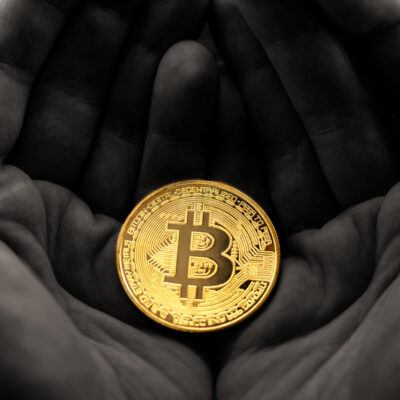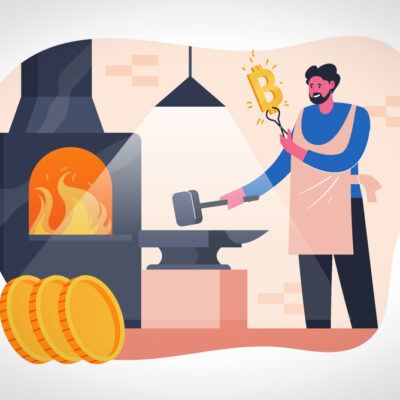
The main use for Bitcoin a lot of people imagine is basically to get rich. They see the number go up and they want to hop on the train. It doesn’t really matter what Bitcoin does as long as the price increases.
I can definitely relate to this. I originally bought some Bitcoin as an investment. It was a hedge against my other investments. It was a bit of a YOLO idea that I didn’t fully understand at the time.
After the crash of 2018 where I saw the value of my investment drop by more than 50%, I figured I’d look into what exactly I got myself into, and discovered that Bitcoin is actually a useful technology, and there are benefits to being part of the network beyond just increasing the fiat value of your net worth.
The great thing about Bitcoin is that there are lots of ways to use it, but you don’t have to use them all. You get to decide what your use case is. With an open network, each individual gets to participate without permission.
Personally, the main way I use Bitcoin is to preserve the purchasing power of my money.
I no longer look at Bitcoin as an investment. Bitcoin is money. Compare what with fiat currencies, which I know for a fact will continue to be debased and will lose purchasing power over time. The question is not IF. The question is HOW MUCH. Currencies losing value is baked into their design. With Bitcoin, there’s a question about how much it will be worth in the future, and I’m willing to take that risk. In my mind, a potential to the upside beats a guarantee to the downside!
Wealth preservation and growth is just one part of the story though. Why does Bitcoin have value? Because it’s useful.
5 Uses For Bitcoin Other Than Wealth Preservation
1. Sending Cheap Remittances Globally
Remittances is a term you may not have heard of before, but you’re probably familiar with the concept. It’s when someone is working in a developed country and sending money to family or friends in a developing country. It’s called “remittances” instead of “payments”, because you aren’t paying for a good or service. You’re basically giving money to friends and family.
The global remittance market is currently over 700 billion and is projected to continue to grow in the future. Some countries like Tonga and El Salvador rely on remittances for a significant (more than 20%) portion of their GDP.
Right now, when someone sends a remittance overseas, there’s a lot of touch points in that process where value is lost. Fees are lost to the money transfer service (e.g. Western Union), as well as the cost of traveling to and from the bank. Add onto that time required to complete the process. For someone in a rural town, it could take an entire day of travel to reach the nearest bank.
People who send and receive remittances can save time and money by leveraging Bitcoin.
First off, sending Bitcoin is instant. Anyone who has a Bitcoin wallet can send and receive Bitcoin anywhere in the world. On-chain transactions can get confirmed in 10 minutes, and lightning transactions are instant. If there are local vendors that accept Bitcoin as payment, then they can spend that money immediately. If not, there may be a Bitcoin ATM nearby and they can withdraw money in their local currency.
While Bitcoin ATMs are not very widely distributed right now, there are more Bitcoin ATMs than Western Union branches around the world. Plus, consider that it’s a lot cheaper and easier to install a Bitcoin ATM than it is to build a branch of a global money transmitter in rural areas.
The fees are cheaper too! Sending small remittances of $100 could cost you 25% of the transaction since there’s a flat fee for wire transfers with most banks. Most remittances aren’t for thousands of dollars. They are regular payments in small amounts. Right now, fees might even be a reason for people to change their behavior and send large amounts of money less frequently in order to save on fees.
Carrying around large amounts of cash as you walk out of a bank in a developing country could be a real danger to consider. It’s a lot less dangerous to carry some Bitcoin on your phone!
With Bitcoin, the same transfer might cost you $0.25. That’s saving almost 100% of the fees during the transfer process.
When you start looking at currency conversion, you realize that even more value can still be erased by the time the receiver actually gets cash in hand. Bitcoin ATMs also currently have high fees and selling Bitcoin at spot price through these machines isn’t very favorable at the moment, but those fees are expected to come down as competition increases.
Though I do not send remittances, I did work abroad for a time and have dealt with the annoying SWIFT system of banking and am familiar with how much money can be lost when sending money between banks that use different currencies. Looking back, it would have been a lot easier and cheaper to just change my local currency to Bitcoin.
Then, I would have had the choice to leave it in Bitcoin as a savings vehicle or change it back to dollars when I returned to the US.
For frequent travelers and expats, I think this is an underrated use of Bitcoin. It makes sense to have your savings in Bitcoin, then just use petty cash in local currencies to purchase goods and services as you need them. Bitcoin is global money!
Related Content
2. Borderless “Bug Out” Money
Before I knew about Bitcoin, I lived abroad in a couple of different countries. In one particular country, I saved a decent amount of cash in a local bank account. Eventually, when I decided to leave the country, I wanted to transfer that money to my US bank account.
However, the country was known for corruption, and my knowledge of the language wasn’t enough that I felt confident to go to the bank and set up a SWIFT or wire transfer. In fact, to send money abroad, you needed a special type of account, and I didn’t know how to do that either. What if I set up the transaction and the banker took 50% of the money? I wouldn’t have any recourse at all.
So, I considered that maybe I’d just take the cash with me across the board when I left the country, but then thought that they could probably detect a bag full of cash with their x-ray machines in the airport, as currency controls were another thing this country was known for. I didn’t want to get caught trying to expert cash illegally (I didn’t know if it was legal or not).
I was stuck. Was I just going to have to burn through 5 years of savings in-country because I couldn’t take it with me to my next travel destination? Eventually, I talked to a local friend who was able to help me through the local banking process, but I was lucky that I knew and trusted someone locally.
While my specific situation was unique, there are many people around the world who face issues of currency control and government corruption. Having access to digital, verifiable, transferrable money that’s globally accepted is a huge win for people who live in these places. I wish I knew about Bitcoin back then because I would have just traded my currency for Bitcoin locally and traveled across the border with my seed phrase in my wallet (or memorized).
Border Wallets is a new concept in bitcoin that allows you to create a bitcoin private key that can be quickly and easily memorized, leaving no trace of your bitcoin if you have to physically move/flee/travel from one place to another. No paper required!
When you arrive at your new destination you can just restore your seed to a new wallet, mobile or otherwise, and send it safely back into cold storage.
Bitcoin isn’t just good for a physical bug out either. You might want to stay in the same place, but get your money the fuck out of the local currency.
What I mean is that there are more countries than you would imagine experiencing very high inflation rates. Higher than 10%. People living in countries like Turkey, Lebanon, and Argentina are seeing their money devalued at a rate that will decimate their savings in less than a decade. Saving their money in Bitcoin means they get to sit out this devaluation. Who knows how many zeros will be added to their notes in a decade!
Even if they don’t want to leave the country, they need an exit plan for their savings. Many complain that Bitcoin is too volatile to be a store of value. 20% swings in a day, or 80% swings in a year is just crazy, right?
What’s even crazier is having your money guaranteed to be diluted so that you have nothing left in 10 years.
If you’re in a shitty situation like that, Bitcoin’s volatility starts to seem pretty sane in comparison.
This is a list of uses for Bitcoin, and it doesn’t mean that every use is applicable to you. Index funds yielding 7% may be the best option for your long-term savings. That choice may not be an option for others, and Bitcoin could be an excellent life raft that may actually save them from financial ruin.
3. Private Online Payments
Everything you buy online is being monitored. When you use your credit card, your bank knows what you bought, from where, how much you spent, where you were at the time of the transaction. If you trust your bank and don’t care about privacy, it’s probably not a big deal to you.
Do they deserve to have that information? I guess you could make a case for that, if they have to protect their business model and ensure that you aren’t putting them at risk.
However, that trust in your bank comes with some other downsides you may not have considered.
One is that your government can get access to that data. They can either purchase that data like any other company, or they can use their powers as a government to subpoena the information and watch your transactions in real-time.
Maybe you trust your bank AND your government with your information, but do you trust them with your cybersecurity? Large companies and governments have been proven over and over again to handle data irresponsibility, and it can fall into the wrong hands with enough incentives to access that data. Your personal data is valuable since it can be used against you.
At least in the US, our federal and state governments have shown themselves to be unable to handle our private information securely. They are continually and consistently unprepared for cyber attacks. Even if you assume that they are working in our best interest, they cannot be trusted to hold that data securely. When there are breaches, it’s not like we can unsubscribe from our state or country and pick another one. We just have to shrug our shoulders and move on.
Because they cannot be trusted to hold that information securely, one option we have is to limit the amount of data they have access to. A tool you have available to you to make your online financial transactions more private is Bitcoin.
Making private Bitcoin transactions is not easy. It requires a strong interest in the topic and consistent work. It’s a choice that most people will not choose, due to the convenience factor. It’s an option though, and an underappreciated aspect of using Bitcoin for online payments.
It’s not some kind of cyberpunk dystopian fantasy that hackers want your data so they can manipulate you and coerce you to steal your money. It’s the reality we live in. The reason you haven’t been hacked yet isn’t because you cannot be hacked. It’s because nobody cares enough to do so… yet.
With Bitcoin payments, you have the ability to conduct online transactions pseudonymously. Though Bitcoin is an open ledger, with the right toolset, you can also conduct these transactions privately.
With USD, there is no option to do online transactions privately. There is no cash equivalent online with USD. Online, everything is tracked and recorded, and attached to your ID. Compare that with an in-person transaction in real life. When you go into a store, you can hand the cashier some paper money and they give you stuff. They don’t need to scan your ID, approve the transaction, and keep a permanent record of you having bought that item.
Bitcoin allows you to conduct transactions in a similar way online.
4. Send Hard Money Anywhere In The World, Instantly
I talk a lot about Bitcoin as a store of value because that’s mainly what I use it for. I have credit cards and monthly cashflow in fiat, so I’ll just spend that garbage and save MONEY in Bitcoin. Bitcoin is the unit of account for my savings.
Contrast that with most people, who are using the stock market as a savings account. Everyone just buys an index fund to track the US stock market because they know that holding cash means they are losing value over time. Sure, technically that money is being invested into companies, but you probably have no idea what companies are in that index fund, and probably don’t care. That’s not investing.
In this way, index funds are being treated like savings accounts. Since cash loses value, you need some kind of passive vehicle to store your wealth in the meantime, otherwise, you’re losing 3% purchasing power per year.
The trouble with index funds is that they are not very versatile. I can’t trade a fraction of a share of The S&P 500 to buy something online!
If I need cash for a purchase, I can only sell during trading hours Monday-Friday, and funds are only sold at the end of the day. Then, they may take several days to settle. Once they’re fully settled in a money market fund, I have to initiate a transfer to my bank account, which could take another week. For example, with my Vanguard fund, there are a bunch of rules, and I can’t access my money very easily.
In total, it will take about 1-2 weeks to get access to my own money.
With Bitcoin I can leverage this same “store of value” concept without all the rules or waiting. The value of my money is protected by Bitcoin’s 21 million hard cap, and I can send money anywhere in the world instantly. If I need to buy something, I just use my Bitcoin.
But wait – I thought you couldn’t buy anything with Bitcoin?!
First off, the number of products and services that can be purchased with Bitcoin direction is growing. What you can buy with Bitcoin is pretty limited right now, but the selection is growing. These things take time.
What can you buy with Bitcoin right now? A lot of the stuff you can buy right now fits into three categories:
- luxury items like cars, jets, gold, and art
- online items like VPN subscriptions, domain names, and video games
- Bitcoin related things like Bitcoin hats, Bitcoin socks, and Bitcoin wallets
There are a couple of ways around this that will allow you to spend your Bitcoin at more places.
- buy gift cards
- use Bitcoin debit cards
Personally, I hate the gift card method unless you can buy gift cards from Amazon, which is a pretty universal product sales point and you can get anything you want there. You can purchase a gift card with your Bitcoin and start spending within minutes.
The other option, which is even faster, is to have a Bitcoin debit card and spend directly from that. A Bitcoin debit card is where you have money stored in Bitcoin in an exchange account, then you have a debit card which spends from that account.
Each card works differently. Some can spend directly from Bitcoin. Others require you have fiat in the account, then pay out rewards in Bitcoin. Whichever you use, you’d be able to manage your account from your phone, and buy/sell Bitcoin as necessary to pay for purchases. These debit cards are usually VISA, so are accepted everywhere.
The downside here is that you’d need to store some of your Bitcoin on an exchange, but it’s not a big deal to have a small portion of your stack on an exchange if you plan to spend it anyway.
Alternatively, you could keep all your Bitcoin in cold storage, then just transfer what you need as you need it.
Spending Bitcoin directly to merchants isn’t ideal right now, but it’s getting better. Even for myself, as a Bitcoin enthusiast, I have to acknowledge that it’s easier to just save in Bitcoin and spend fiat.
Still, being able to save in a hard money that won’t be devalued over the, and having the option to spend it directly could be the best option for some people. It’s still much faster than waiting two weeks, as with the index fund example!
I can spend my Bitcoin anywhere, any time of day, anywhere in the world, without anyone’s permission.
5. Value-For-Value Content Creation
Imagine the internet in the ’80s. Most people didn’t have a personal computer, and if you did, it was one of those very basic text machines. You know – black screen and green text. Hackerman™ style. Its use was limited to just a few practical applications, so you only saw adoption from people like stockbrokers, research scientists, and digital enthusiasts.
Welcome to the base layer, TCP/IP
Now picture the internet in the ’90s. A few more people had personal computers at home, and there were some very basic polygon games. You could get email and look up the news. This is HTTP built on top of the base layer.
Fast forward to today, and for some, our entire lives happen online. The apps we depend on are built on top of HTTPS, which is built on top of TCP/IP.
Bitcoin works in the same way.
We are already starting to see apps built on top of lightning, which is built on top of Bitcoin. Apps could be video games that pay you when you win, or podcasting apps that pay creators per minute. This is why they call Bitcoin The Internet Of Money.
Right now, a lot of the apps are used by Bitcoiners who love Bitcoin and want to see the ecosystem grow. In the future, there may be a killer app which forces people to adopt Bitcoin, even if they don’t care about Bitcoin the asset. For example, look at how many people bought an iPhone just because it had all the cool apps on the App Store.
Your average person buying an iPhone doesn’t care about how an iPhone works or the implications of mobile technology. They want to use it because it’s cool, fun, and practical.
We may see a similar trend in Bitcoin Land, where people start adopting it because it does something useful and practical.
Personally, I think that streaming micropayments for creators directly via lightning apps could be this killer app. With Bitcoin, or more specifically lightning (built on top of Bitcoin), you can stream micropayments to creators and actually write code to program payments. For example, you could stream 5 sats per minute to your favorite podcast and have that payment split 70/20/10 between podcast host, podcast producer, and the guy who wrote the intro music.
How many podcasters would love to be paid for their content instead of having to read ads for 10 minutes? Perhaps something like this could be developed for musicians, so they could get paid each time someone streams their music on Bandcamp or Soundcloud.
This is the idea of value for value. I create something, and you pay me directly for it. No middle man. No ads. Micropayments make this possible, and Bitcoin facilitates this.
Would people rather pay $0.01 per minute of a song played rather than a one-time fee of $5 for an album?
I haven’t heard anything about streaming video on Bitcoin yet, but who knows? Maybe someone will build that in the future.
Even if streaming podcast content stays more of a niche thing in the future, the point is that you can build applications on top of Bitcoin. Since Bitcoin is open source, anyone can build anything they want. It’s not a walled garden like iOS where you have to be approved in the app store then share a large portion of your revenue.
There’s a lot of potential here!
More Use Cases
Just some interesting articles I’m collecting to demonstrate why bitcoin could be useful for certain types of people. One of the main FUDs you hear about bitcoin is that nobody uses it or that nobody needs it for anything other than price speculation. Here’s proof that’s incorrect.
Independent Media Funding & Operation
Activist Banking in Oppressed Regimes
Final Thoughts
After that price crash in 2018 and my subsequent Bitcoin education afterward, I think my favorite thing about Bitcoin is that I can own real money without “investing”. The main way I use it is to store my excess production in real money. I don’t need to invest in stocks. I don’t need to apply for loans to purchase rental properties and manage them. I don’t need to watch my savings bleed out 50% over the next few decades.
I can just own money. Simple. That’s my main use for Bitcoin right now.
As the Bitcoin economy grows, I may find more reasons to spend my Bitcoin in the future. I could see myself buying a bigger home, or maybe some land. I could see myself traveling to some Bitcoin-friendly destinations and spending some of my stack into the local economy. As more creators put content on lightning, I would absolutely pay money to skip the ads and support content directly.
Bitcoiners are building, and it’s a very exciting time to be part of the Bitcoin network.
One very cool thing about Bitcoin is that there’s no single way to use Bitcoin “properly”, so you get to decide how you want to use it.
Maybe there will be even more uses for Bitcoin that we haven’t imagined yet. Could someone using the internet in 1995 imagine TikTok or Netflix?
What will you use Bitcoin for?


















 What Will Be The Price Of Bitcoin in 2030?
What Will Be The Price Of Bitcoin in 2030?
Leave a Reply